Director: Ching Siu-Tung
Cast: Michelle Yeoh, Kent Cheng, Andy Hui Chi On, Hung Yan Yan, Vincent Lau Tak, Kwan Shan, Elvis Tsui Kam Kong, Chin Ho, Hilary Tsui Ho Ying, Guan Shan
Running Time: 88 min.
By Paul Bramhall
By the mid-90’s Hong Kong audiences appetite for the new wave wuxia boom was starting to wane. The likes of the Swordsman trilogy (and, well, any early 90’s movie starring Brigitte Lin) had wowed audiences with their bombastic wirework fuelled action scenes and convoluted plots, but times were changing once more. As 1997 approached tales of high flying swordsmen and deadly reams of silk were no longer in favour, and so it was directors who had made the new wave wuxia genre their niche, found themselves being forced to explore other genres to exercise their creative muscles.
Out of all directors who dabbled in the wuxia boom of the era, there’s arguably only one whose name is intrinsically linked to so many of the images that the genre brings to mind, and that name is Ching Siu-Tung. From stuntman to fight choreographer to director, Siu-Tung has done it all, and his 1983 directorial debut Duel to the Death is considered one of the all-time greats. In the early 90’s almost every new wave wuxia flick saw him involved in some capacity, whether it be directing (the Swordsman trilogy) to choreographing (Butterfly and Sword, Holy Weapon), the stamp of his highly stylised and energetic action sequences was an unmistakable one.
So it was understandable that Siu-Tung would look to transpose that same action aesthetic to a more contemporary setting, which is what he did with 1994’s Wonder Seven. Taking place in modern day Hong Kong, the Wonder Seven in question are a group of highly skilled Chinese agents, who the authorities call upon when they need to get a job done. One such job involves retrieving a pair of key cards, that when combined together, can grant access to millions of offshore dollars. However they have competition in the form of the Japanese yakuza, who are also after the cards, plus there’s some behind the scenes backstabbing going on, which all culminates in a race against time to protect the cards and save one of their own.
The plot of Wonder Seven is actually fairly straight forward, where it gets complicated is in the abundance of characters it throws on the screen, combined with the fact that many of them simply aren’t that interesting. Our seven heroes are played by Li Ning (if you’ve never heard of him, don’t worry, he only acted in 3 movies and one of them was the Bruce Le flick Ninja Over the Great Wall), Kent Cheng (Run and Kill), Roger Kwok (Fearless), Andy Hui (Future Cops), Xiong Xin-Xin (Once Upon a Time in China V), Vincent Lau (How to Meet the Lucky Stars), and Hilary Tsui (Shaolin Popey). There are attempts at characterising them (surprise – they’re orphans), but outside of the more familiar faces of HK cinema, the likes of Roger Kwok, Andy Hui, and Vincent Lau could have benefitted from being rolled into one character.
If anything the supporting characters are far more interesting. Michelle Yeoh, who was used as the face of the marketing campaign both locally and overseas, plays the conflicted girlfriend of a ruthless assassin, played with relish by Chun Ho (The Last Blood). By 1994 it had already been 2 years since Yeoh came out of retirement, with her stellar turn in Police Story III: Supercop, and her presence elevates Wonder Seven whenever she’s onscreen. Despite her character being central to the plot, because of the overcrowded cast, her role feels more like a supporting one. Thankfully she’d get more screen time in Wing Chun from the same year. Category III legend Elvis Tsui also turns up as the former coach of the Wonder Seven who now has to track them down, and manages to keep his clothes on for the entire time he’s onscreen.
The action in Wonder Seven sees flying swordsmen and their deadly swords replaced with motorbike riding Chinese agents and their…motorbikes. There’s a pre-credit sequence which sees our seven heroes pursuing a group of Mainland bank robbers (ah, those were the days) towards the HK and China border, and it’s one of those glorious reminders that often the most throwaway HK action scenes could rival the finale of any Hollywood action flick when they were firing on all cylinders. With the HK police unable to cross the border into China, the Wonder Seven jump their bikes over the fence (which includes a great sight gag involving Kent Cheng), and proceed to round up the criminals using a mix of fists, feet, archery, and their motorbikes. Plus there’s the slightly uncomfortable sight of pigs and geese being used in a role usually reserved for the kind of breakable props stuntmen get thrown into.
The wuxia styling is on full display, even down to the characters names, such as Steel Bar, Superman, Dragon, and Shaolin Monk (no prizes for guessing which one of them goes under this moniker). However things do get a little ludicrous as they jump and acrobatically manoeuvre their motorbikes around, while at the same time yelling the name of the move they’re about to perform, intentionally mimicking the same trope characters were fond of in old-school kung-fu movies. It’s a quirky addition to the action scenes, if an undeniably goofy one.
Thankfully not all of the action is limited to the vehicular variety, and along with Xiong Xin-Xin, frequent collaborator Lau Chi-Ho, and then relative new comer on the action directing block Dion Lam, Siu-Tung has put together a formidable team of action directors whose talents don’t go to waste. While there’s plenty of gunplay on display, we do also get some one on one face-offs as Li Ning goes up against Michelle Yeoh, and Andy Hui squares off against Elvis Tsui. Despite many of the cast being proficient in martial arts though, as per was standard for the era, Wonder Seven is more about big set pieces than it is intricately choreographed exchanges. To that end, it delivers, and its bombast isn’t only limited to its action scenes.
Wonder Seven deserves some kind of award for the most ridiculous funeral scene ever committed to celluloid. I mean, why go for a burial or cremation, when you can have your buddies straddle your lifeless corpse to your motorbike, rig it to the nines with dynamite, and then send you full speed over the edge of a cliff before detonating mid-air to send you up in the mother of all fireballs? As if that wasn’t enough, let’s set the whole scene to a musical montage which incorporates flashback moments from better days. I mean, El Cid really has nothing on these guys. It’s these moments that serve as a reminder of the days when you never knew what a HK flick was going to assault you with next, and movies from this era where really the beginning of the sunset on this unique brand of HK styled insanity.
Siu-Tung and his cohorts go all out for the finale, which without going into spoiler territory, starts with Chun Ho unleashing a drum solo in a basement carpark with a full drum kit (it makes as little sense onscreen as it does in writing), and ends with an explosion propelled projectile elevator versus a helicopter (it makes more sense onscreen than it does in writing, barely). While our heroes may be several shades of bland, thankfully they’re compensated by the ridiculousness of the action on display, which refuses to give a damn about such minor details as gravity, certain death, and any degree of basic logic.
It almost feels as if Siu-Tung watched the final cut of Wonder Seven and perhaps said to himself, “This really stretches believability doesn’t it?” As while he’d stick with the contemporary setting for his next outing, Dr Wai in the Scripture With No Words, he opted for the Operation Scorpio approach and framed the action within the context of a novelist visualising their latest story. While this approach may have allowed for even wilder action scenes, personally I enjoyed watching the over-the-top aesthetic of a new wave wuxia being imposed on a modern day actioner. Just change reams of silk for the fumes of an exhaust, and an all powerful weapon with a skyscraper rigged to explode, and you should be in for a good time.
Paul Bramhall’s Rating: 6/10

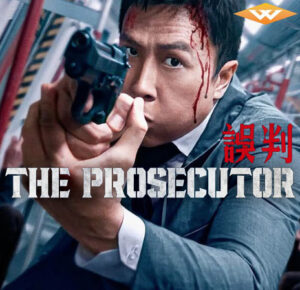
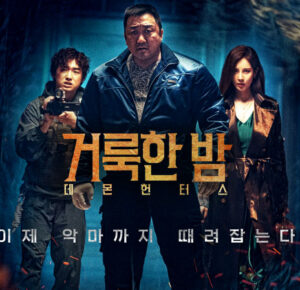
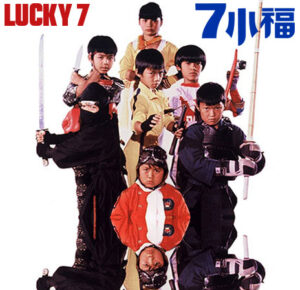
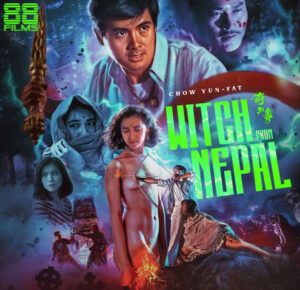
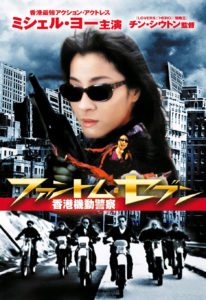
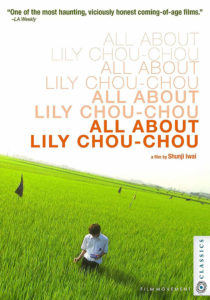
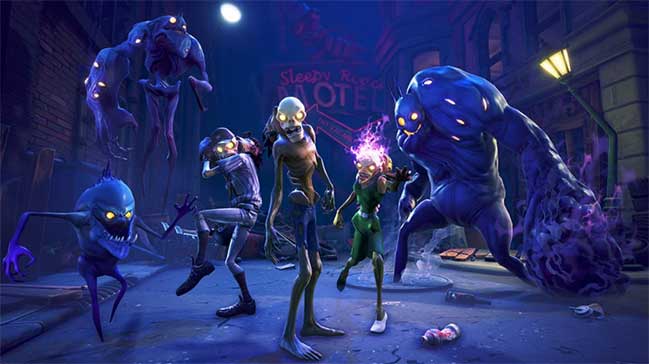 It’s crazy to think about the rapid rise of Fortnite. It’s made Epic Games a billion dollar company and enthralled millions of people around the world, young and old, male and female.
It’s crazy to think about the rapid rise of Fortnite. It’s made Epic Games a billion dollar company and enthralled millions of people around the world, young and old, male and female.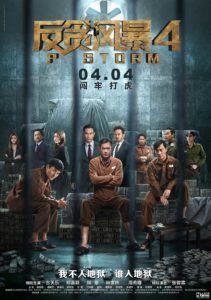

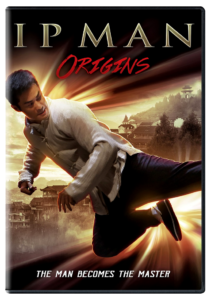
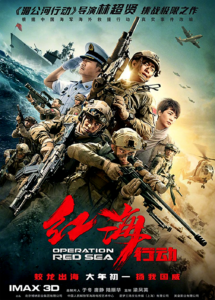
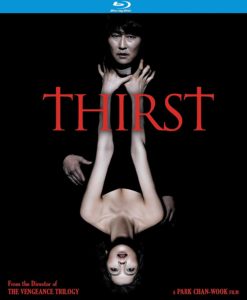


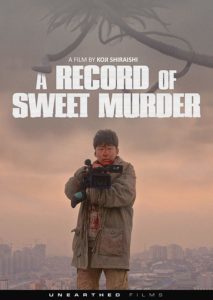
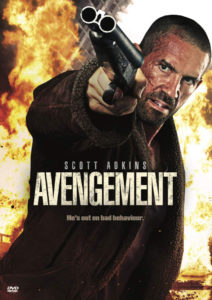
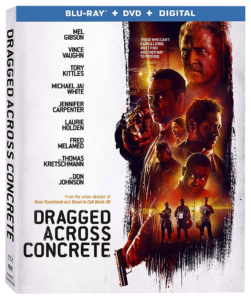
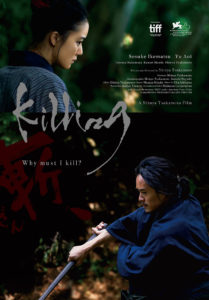



3 Comments